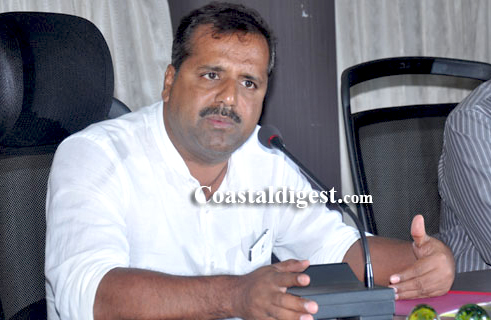Bengaluru, Mar 3: The State government is all set to launch the Mukhyamantri Santwana Yojana, that will provide free relief to accident victims, on March 8, Minister for Health and Family Welfare U?T?Khader said here on Wednesday

Speaking at an event organised by the Federation of Karnataka Chambers of Commerce and Industry (FKCCI), Khader said that the State government will provide Rs 25,000 relief to the accident victims for the first 48 hours under the scheme.
“It is not just the people of this State, others too are eligible to avail treatment. Even if an outsider meets with an accident in the State, he will also be eligible to avail the benefits under this scheme,” he added.
A total of 280 hospitals across the State have been identified to offer the scheme. Apart from taluk-level hospitals, district-level hospitals and medical college hospitals, 80 private hospitals have been empanelled under the scheme.
Khader added that fully equipped blood banks would be set up in all districts and blood collection centres would be set up in all talkus across the State. However, the minister did not divulge details on the amount set aside for these under the State budget.
Following recommendations by the FKCCI for more dialysis centres in rural areas, Khader said that the State would soon have dialysis centres set up on a public-private-partnership model basis at all taluks.
“The government can have several dialysis centres but finding manpower has remained a challenge. Hence, to address this, we will partner with NGOs,” he said.
Garbage crisis
When representatives of the FKCCI spoke about the garbage crisis in Bengaluru, the minister said that until a solution is found to address the garbage issue, there can be no end to communicable diseases.
“There are so many lakes in the City. How many of them are cleaned at regular intervals? Not even 40 per cent of what we consume as drinking water is fit for human consumption. Even the civic body has to do its bit,” he remarked.
Meanwhile, P?S?Ramkumar, member, FKCCI urged the government to improve tele-medicine to save the a patient's travel cost and time. “On an average, if people in Bengaluru have to avail treatment, Rs 5 crore is spent on travel alone. If tele-medicine can be improved, at least 80 per cent of the travel can be cut down,” he said.




Comments
very well done sir, your have done a very good move in this, it will save our youngsters lives.
Add new comment